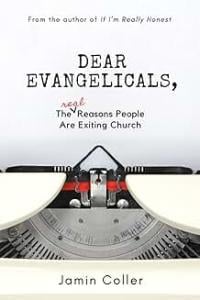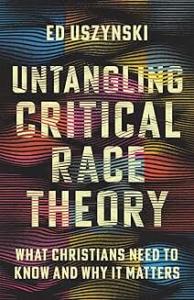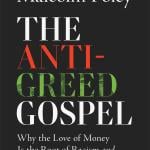Do evangelicals like questions? I guess it depends. Personally, I like both asking questions and the challenge of answering questions. Both seem as natural as breathing to me. One of the things I like about questions is that they can be legitimately asked for the purpose of teaching the inquirer new information . . . or not. Sometimes questions are more about revealing something to the person being asked the question.
I think I like asking questions so much because it is the best way to take charge of my own learning, and according to the Clifton Strengths Finders assessment my number one trait is “Learner.” I serve on the boards of two nonprofit organizations. In the past year, leaders of both organizations expressed their appreciation for my questions because they demonstrated that I cared, and because they inspired them to think more intentionally about how they lead. I like questions so much that I was first attracted to my wife because of the Bible questions she asked me when I was an associate pastor. To me it revealed an attractively high level of intellectual curiosity.
Even though God’s omniscient, even He likes questions. Consider: “Adam, where are you?” (Genesis 3:9) “Ezekiel, can these bones live?” (Ezekiel 37:3) and “Saul, Saul, why are you persecuting me?” (Acts 9:4) And we dare not forget how he patiently entertained Job’s questions and then responded to Job with His own questions. I think my favorite is: “Where were you when I laid the foundations of the earth?” (Job 38:4) A true God-style smack down! In each of these situations, it’s instructive for us to meditate on what the question itself is accomplishing.
As a trained historian, I think about questions a lot because virtually all research is an answer to a question. It seems that the questions researchers ask frequently have personal significance for them. The most conspicuous illustration of this is that among historians white males have traditionally tended to research the past actions of white males, and when women and African Americans were admitted into history PhD programs, they tended to pose research questions about women and African Americans, respectively. Of course there are exceptions, but my point is that one’s questions often are at least partly informed by their identity.
Another important truth about questions is that we can only know about the things we choose to ask questions about. There are questions about medicine and nutrition that our society doesn’t know the answer to because none of the entities that fund that research want those questions answered. I’ve heard from a well-placed Southern Baptist leader that there is an unwritten agreement to not survey how many students in SBC-approved seminaries plan to enter full time Christian ministry because many fear that the percentage is much lower than certain SBC constituencies would want to hear.
So what do you ask questions about? What do you not ask questions about? Why? For some evangelicals, asking questions of the spiritual authorities in our lives can yield mindless or even traumatizing answers, as Jamin Coller has recently spelled out in chilling and tragic detail in his Dear Evangelicals, The Real Reasons People are Exiting Church. But then some evangelicals seem to have no questions, or at least extreme confidence in their answers for an amazingly long list of questions. Historian and activist Dr. Jemar Tisby has explained this issue very clearly here.
But what about questions white evangelicals ask (or don’t) about race and ethnicity? In the recently published Untangling Critical Race Theory: What Christians need to Know and Why it Matters, Ed Uszynski offers a penetrating critique of the white evangelical response to the kinds of problems CRT scholars address. He explains that CRT scholars pose questions about how race and power function together in our society to the detriment of some and to the benefit of others. He insightfully asserts that they are functionally studying systemic and structural sin, although they don’t believe in sin and don’t call it sin. He then rightly criticizes the bulk of evangelicals who demonize Critical Theory and CRT because it seems to him that those same individuals “never follow up to address the problems it illuminates.” To drive his point home, Uszynski presents a list of poignant questions:
“Are you able to discern when sin becomes systemic?
Can you point to more than “bad choices” as an explanation for poverty?
Can you talk intelligently about how power gets used to oppress groups of people?
You may scoff at “oppression” everywhere, but in a broken world do you see it anywhere?
Why do you so easily accept and ignore the disparities and effects of capitalist excess?” (p. 74-75)
Such questions are obviously designed to reveal things in the [white evangelical] reader, and to the [white evangelical] reader.
Uszynski’s book is a much needed clarion call for white evangelicals to develop a robust theology of systemic and structural sin to balance with the already robust doctrine of individual sin and individual responsibility. With much merit he asserts, “I am concerned that we’ve absorbed a particular version of Christianity that minimizes certain biblical themes at the expense of others, and those themes matter to nonwhite people in a way that needs to be taken more seriously by white Christians.” (p. 151)
It is really striking to me how much the heart of the Father in the Old Testament and the life of the Son and the early Church in the New Testament are so thoroughly identified with the outcast, marginalized, and oppressed. The Old Testament repeatedly addresses the proper treatment of orphans, widows, and aliens, and in the New Testament Christ asks women to be the first people to share the news of his resurrection, and the early church was largely populated by women, slaves, and the lower classes.
Even Solomon said:
“I saw the tears of the oppressed—
and they have no comforter;
power was on the side of their oppressors—
and they have no comforter.” (Ecclesiastes 4:1)
One could quote a long litany of passages from the Pentateuch, the prophets, and the wisdom literature that address these matters. Concern about oppression was “prophetically biblical” long before it was “politically and socially weaponized.” As Uszynski says, “even a casual reading of the Bible reveals themes now considered controversial in conservative-leaning church circles.” (p 160-61) The recent dust up
And then in the early church the apostles gained an outsized portion of their converts from among women, slaves, and the lower classes in general. Very little of this flavor is experienced in the theology prominent among white evangelicals. But it makes sense since historically in this nation their experience has not been primarily characterized by being oppressed. They have not needed to deeply develop a theology that spoke to corporate suffering and injustice.
I close by returning to the original topic of my multi-part post: Religion or Ethnicity.
Building on I Peter 2:9-10, several Christian leaders in the 100s and 200s considered Christians a new genos, just like contemporary writers considered the Greeks, Romans, and Egyptians a genos. Aristides, a second century Greek Christian convert, actually claimed there were three genos: Jews, Christians, and “worshipers of “so-called gods.”
Despite what American evangelicals publicly claim about our faith, our polarization in recent years has had made it clear that in American church life many people are prioritizing their politics over their Christian identity. In this context, what would be the social and racial implications of Christians identifying primarily as a people group, and not a religion? I know this is a fanciful exercise, but since I like asking questions, here I go:
Were Peter and the early church fathers wrong to call Christians a new genos and a new ethne? What does it mean to you to be a race or ethnic group and not just a religion?
Do you live as though you are part of racial or ethnic group called Christian?
What would it be like for Christians to view each other first and foremost as Christians and demonstrate no bias for or against any of the other social identities we hold?
Could we actually create uniquely Christian cultural practices that unite all Christians regardless of our secondary or tertiary social identities and that distinguished us from all of the other subcultures in American society? What would that look like?
Since social status is a real thing, if Christians were widely accepted as a unique genos or ethnos, should we expect our status to be relatively high or relatively low, and why?
A friend of mine recently told me, “I think the reason Jews are continuously mistreated is because they refuse to surrender an identity that supersedes that of the nation in which they actually live.” Could American evangelicals ever become like that?















